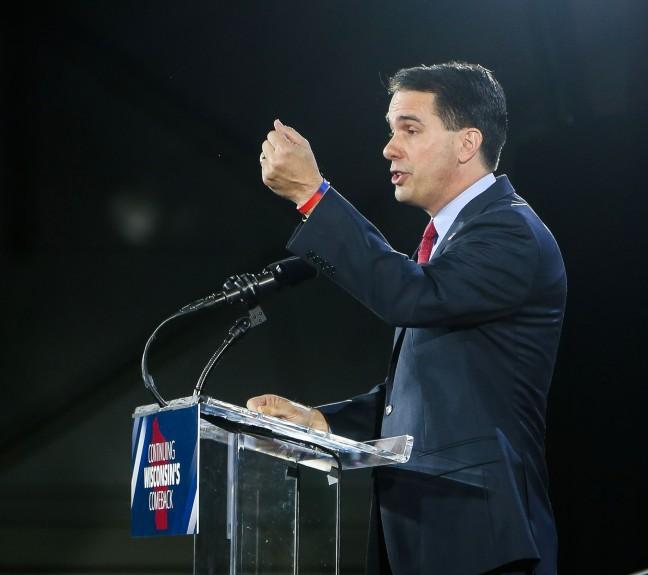Since the Iowa Freedom Summit in January, Gov. Scott Walker has continued to impress GOP circles across the nation. He emerged as an early front runner in polls and appears to be well-funded. He also seems to appeal to far-right Tea Partiers and established Republicans alike. Walker continues to distance himself from the chaos in the nation’s capital so he can instead present himself as a fresh embodiment of conservative ideals.
Walker’s electoral victories in Wisconsin indicate he has plenty of loyal supporters. Since the protests of 2011, it seems most people have already formed their opinion on Walker. But the disapproving nature of the recently released Marquette Law poll could pose an additional obstacle for his presidential aspirations.
More than 56 percent of those surveyed disapproved of Walker – a nine percent increase from last October – and 70 percent opposed Walker’s proposal to cut $300 million from the University of Wisconsin System. There is hesitation to Walker’s decisions, along with doubts for the state’s current economic progress and job market.
Walker faces a troubling dilemma. Historically, presidents do not win without support from their home state. Perception of Walker in Wisconsin has vital importance because, unlike former presidential candidates Al Gore or Mitt Romney, his performance here constitutes his entire resume. Currently, almost 62 percent of state residents do not wish to see the governor run for president.
This is his problem: Walker needs to promote and familiarize his persona to the nation. However, in doing so, he increases the risk of losing support in Wisconsin, which he needs for his nomination.
Walker probably won’t promote his proposed cuts to the UW System; he will step aside and let the Legislature hash out the details. Yet, UW released a report touting its $15 billion impact on the economy, with UW Chancellor Blank announcing that an estimated 400 jobs would be lost as a result of these cuts.
Walker cannot afford to receive additional backlash for these cuts – particularly during the frenzy that erupted after the Wisconsin Idea’s “drafting error.”
Walker’s early national success seems to have been contingent on conservatives appreciating his assertiveness and newcomer status. His wide appeal to the factions of the GOP is encouraging. But for the many conservatives who have yet to form an opinion on him, seeing former Secretary of State Hillary Clinton lead Walker in his own state by nearly 12 percent is not promising. As Walker continues to travel abroad in pre-campaign mode, solving Wisconsin’s internal discontent is crucial for his presidential hopes.
Making his presence in Wisconsin well-known would be a wise investment for Walker. Portraying positive media of his actions in Wisconsin would be helpful as opposed to the recent display of his appearances around the nation. Walker should emphasize his loyalty to his constituents in order to alleviate doubts in Wisconsin that he can successfully juggle campaigning and governing.
More prudently, it would serve to secure the long-term support from Wisconsinites that Walker will need if he wants to continue transforming his popularity into a successful presidential nomination and possible victory.
Omer Arain ([email protected]) is a sophomore majoring in political analysis and research and economics.














